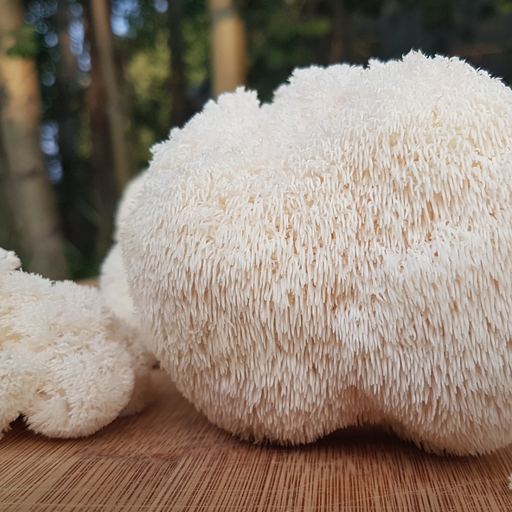Mushrooms are a fungus that we eat and we can find in the forest. Mushrooms have been around for millions of years and they're part of many cultures. Today mushrooms are an important part of our diet and cuisine because they contain lots of nutrients and vitamins. They also play a vital role in the environment because mushrooms manage to make use of waste products from other living beings, such as trees. These 10 health benefits might convince you to start adding mushrooms to your diet!

Nutrition
You'll get more nutrients from your food
When you eat mushrooms, you'll get more vitamins and minerals from the other foods on your plate. This is because mushrooms contain minerals like selenium as well as B-complex vitamins like riboflavin and niacin.
They keep you full for a long time
Mushrooms are low in calories and high in fiber, so they help keep you feeling full longer than most other foods. This might be helpful if you're dieting and trying to maintain a healthy weight.
Mushrooms can fight cancer
One of the nutrients found in mushrooms is vitamin D2, which studies have shown may help fight some types of cancer cells.
You'll improve your immune system
The beta glucans found in mushrooms stimulate the production of white blood cells that fight infection and illness. This can help improve your immune system's defenses against viruses and bacteria.
Mushrooms are good for your heart
This is especially true if you eat cooked instead of raw mushrooms because cooking them helps break down the cell walls, releasing their healthy nutrients into your bloodstream faster—making its benefits to heart health available sooner!
Environmental Benefits
Mushrooms are good for the environment because they help to break down waste products. When other living things die, such as trees, mushrooms can be helpful because they use those waste materials to create energy and grow.
The process of decomposition happens in two stages. The first stage is called "macro-decomposers", and these are common types of bacteria and fungi. The second stage is called "micro-decomposers" and these are insects, invertebrates, protozoa, and many types of bacteria.
There's a type of fungus called mycorrhizae that forms a symbiotic relationship with plants roots. This allows them to extract nutrients from the soil that would otherwise not be accessible to the plant.
In addition to being helpful for plants, mushrooms also have been shown to improve soil by breaking down cellulose. It's been suggested that one acre of cultivated mushrooms can produce 16 tons of CO2.
Clinical Benefits
Here are some powerful clinical benefits of medicinal mushrooms.
- Relieves sinus problems.
- Controls cholesterol levels in the blood.
- Helps with weight loss, by regulating blood sugar and stopping cravings.
- Boosts immune system to fight bacteria and viruses.
- Helps cardiovascular health by reducing inflammation and protecting artery walls from plaque buildup.
- May help prevent cancer, because it contains compounds that interfere with the growth of tumor cells, including breast, colon, prostate and lung cancer cells.

Medicinal Benefits
Mushrooms have been used for medicinal purposes by humans for thousands of years. In the Chinese Materia Medica, mushrooms were used for treatment of a variety of ailments including liver and lung diseases, pain relief during childbirth, and other conditions.
In the Western world, mushrooms have been used as a folk remedy to cure everything from cancer to asthma to male impotence. These days, researchers are actively studying the medicinal properties of mushrooms in order to see if these folk remedies might be valid.
For example, in one study they found that extracts of an edible mushroom called Grifola frondosa had anti-inflammatory effects that could be beneficial in treating arthritis or inflammatory bowel disease. Mushrooms also contain substances known as polysaccharides which can help regulate blood sugar levels.
Mental Health
Mushrooms are the only vegetable known to contain vitamin D so they're a great source of sunlight. Vitamin D is essential for our brain and it's often called the sunshine vitamin because we get it from exposure to sunlight. It's an important nutrient for mood and mental health, and mushrooms provide just enough to keep you feeling good.
Physical Health
Mushrooms are rich in vitamin D, which is important for the absorption of calcium and helping to maintain strong bones. Additionally, mushrooms will provide you with a good source of B vitamins, such as riboflavin, niacin and thiamine. Mushrooms also provide copper and iron, two nutrients that promote healthy heart function and normal energy levels.
Additionally, mushrooms contain high levels of potassium, which is an essential nutrient for your muscles and kidneys to work properly. Potassium is responsible for regulating blood pressure and heartbeat rates too.
Mushrooms also help to keep us healthy by lowering our risk of some cancers such as breast cancer. This is due to their ability to bind carcinogens that can cause cell mutation.
Perhaps one of the most surprising health benefits of eating mushrooms is their impact on our brain health. They contain lots of choline, a nutrient that is important for brain development during pregnancy and improving memory in adults. Choline also boosts brain function because it helps produce phospholipids which form the protective sheath around brain cells called myelin.

Types of Medicinal Mushrooms
There are over 3,000 types of mushrooms in the world. The most common type of medicinal mushrooms are called reishi. Reishi comes from a Japanese name which means "mushroom of spiritual and physical health."
Another type is called chaga and it's the most famous mushroom in Russia and Eastern Europe. Chaga is believed to have strong healing powers and some people believe that it can even cure cancer.
Maitake is another type of mushroom which can be used as a medicine. Maitake is found in North America and Asia on trees such as oaks and pines. Maitake has been seen to help with digestion problems, allergies, fatigue, pain, stomach ulcers, viral infections, osteoarthritis and has even been used before surgery to reduce high blood pressure.
Conclusion
Mushrooms are part of a family of fungi that includes yeasts, molds, and the like. Different types of mushrooms are used for different purposes. There are many different varieties of mushrooms, but some of the most common types used in the medical field are the following:
- Reishi Mushrooms
- Maitake Mushrooms
- Shiitake Mushrooms
- Oyster Mushrooms
- Chaga Mushrooms
- Cordyceps Mushrooms
- Turkey Tail Mushrooms
Reishi mushrooms are traditionally used in Chinese medicine for a variety of reasons. They are antioxidant rich, which helps combat inflammation. They have also been said to have an effect on serotonin levels which can help with sleep problems.
Maitake mushrooms are used by people who want to reduce their risk of heart disease. Shiitake mushrooms are also used for heart health, but they are also used as an immune booster by people who have low levels of beta-glucans - a type of natural sugar that the body cannot produce on its own. Oyster mushrooms can help reduce cholesterol levels. Chaga mushrooms work as a powerful antioxidant, and cordyceps mushrooms have been shown to help with energy.


